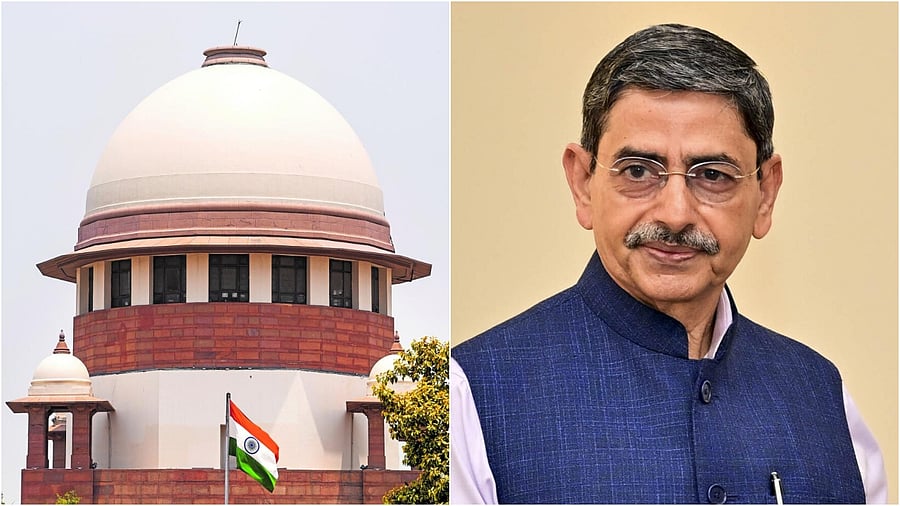
TN government notified 10 Acts without approval of Governor R N Ravi following Supreme Court verdict.
Credit: PTI Photos
Chennai: It was after Governor R N Ravi referred to the President of India 10 bills re-enacted by the Tamil Nadu Assembly that the DMK dispensation knocked at the doors of the Supreme Court seeking to declare as “unconstitutional” his actions of indefinitely sitting on bills.
This was not the first time that the Government complained against the Governor before the apex court. In December 2023, the SC asked both the Chief Minister and Governor to meet to iron out differences between the two institutions but the meeting on December 30, 2023 did not make much headway.
What prompted the government to approach the Supreme Court against the Governor once again was his actions in early 2024.
He had on November 10, 2023 withheld assent to 10 bills passed by the Assembly between 2020 and 2023 and sent two to the President.
The state Assembly re-enacted all 10 bills, mostly relating to the functioning of state-funded universities, and sent them to the Governor on November 18, 2023.
However, the Governor chose to forward the bills to the President which had been set aside, which peeved the government. In April 2025, a two-judge bench declared this as erroneous in law and deemed to have been assented on the date when they were presented to the Governor after being reconsidered by the legislature.
On April 11, 2025, four days after the landmark judgement, the Tamil Nadu government notified 10 Acts without the approval of Ravi following the Supreme Court verdict that the bills readopted by the state Assembly, which were forwarded to the President, were deemed as having received assent.
After the judgement, the governor’s office has cleared bills faster than earlier, sources in the government told DH.
“He has cleared bills with a speed never seen before. But he did withhold assent for a few bills too,” the source added.
The Raj Bhavan had earlier this month said that 81 per cent of the 211 Bills received since September 2021 have been assented to with 95 per cent of them being granted within three months.
The Raj Bhavan said nine bills were reserved for the President, 16 bills were returned with a message to the Assembly and four bills were withdrawn by the State Government, and 8 Bills under review as of late October.
DMK has long harboured a deep aversion to the governor’s post — its governments were dismissed twice, in 1976 and 1991 — and fiercely contested Ravi’s actions in the Supreme Court.
It was Stalin’s father, M Karunanidhi, who, months after succeeding his mentor C N Annadurai as Chief Minister, established the Rajamannar Committee to bolster federalism. The committee recommended that governors function as constitutional heads, not as agents of the Centre.